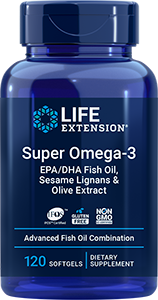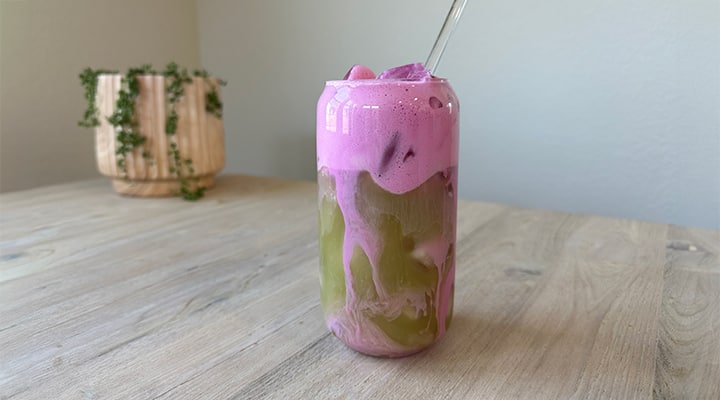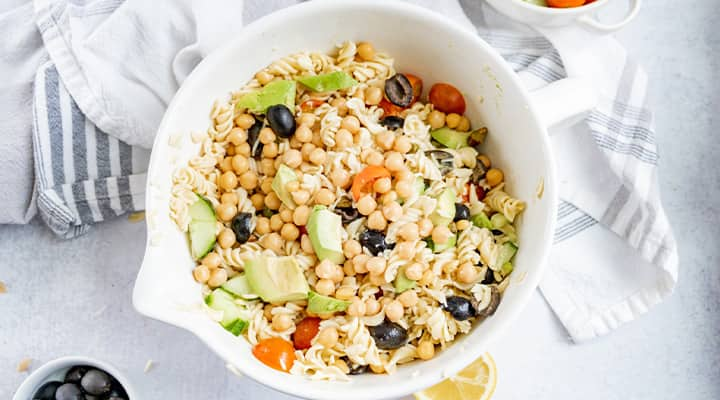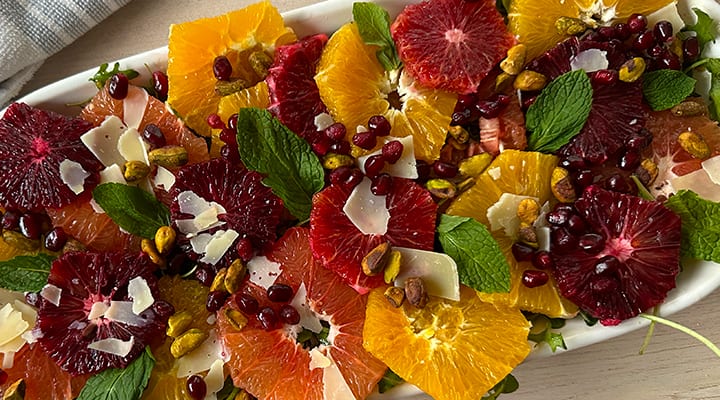
Grilled Salmon Salad: Easy Lunch Recipe
Published: February 2022
This grilled salmon salad is packed with flavor, good fats, and amazing antioxidants. Leafy greens, grilled salmon, pumpkin seeds, and sunflower seeds make for one powerful, delicious combo. And because these ingredients are rich in two heart health superheroes, omega-3 fatty acids and magnesium, this tasty lunch is also a great way to pamper your cardiovascular system.
(Added bonus: this salad recipe is also gluten-free and low carb!)
Health benefits of salmon
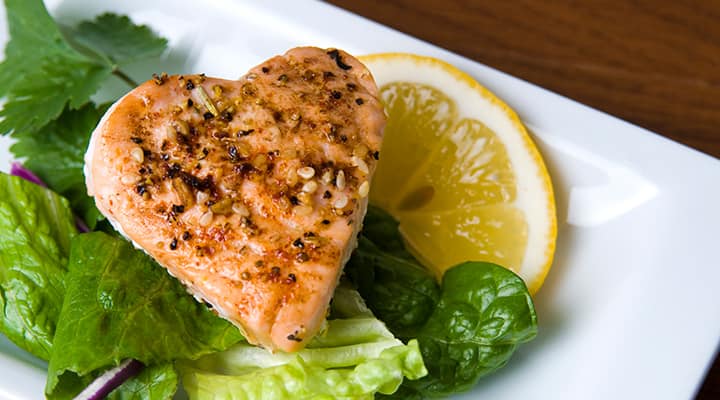
Salmon is packed with nutrients that elevate it to superfood status. Check out this impressive list:
- Vitamin D
- Selenium
- Protein
- Phosphorus
In addition, salmon contains brain health-boosting nutrients, including the omega-3 fatty acids EPA & DHA, B-vitamins including B12, and choline.
How to grill salmon
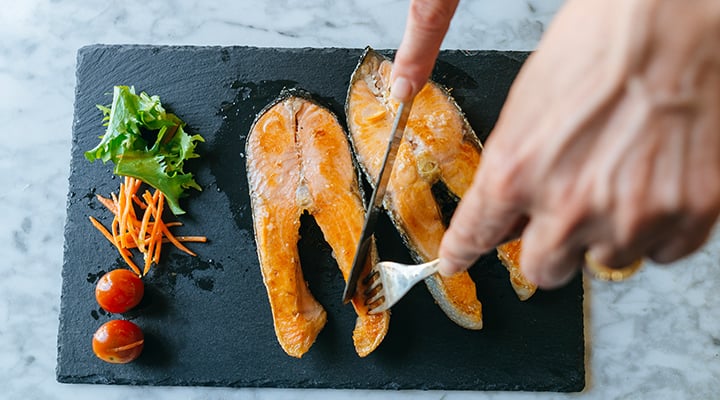
Fresh-grilled salmon may sound daunting to make, but don’t worry! I’ve got a step-by-step process that will break it down for you.
When you get your salmon, look for center-cut pieces. These salmon fillets are thicker and more uniform, so they cook evenly.
Start with a gas or charcoal grill and make sure you have a spatula on hand. I love to marinate my salmon before grilling it, but you do not have to do this. If you decide to let your fish marinate, do it for only 10 minutes.
Before you set it on the grill, set the salmon fillets on a paper towel-lined pan and pat dry. Right before placing it on the grill, rub the salmon with some olive oil on both sides and sprinkle with salt for flavor. It is important to season salmon right before placing it on the grill to avoid moisture loss and flare-ups.
How long to grill salmon
When you’re ready, place the salmon skin-side down on the grill. Cook for 6 to 8 minutes, depending on the thickness.
Use a spatula to flip the salmon over onto the lower-heat side. Admire those grill marks! Cook for an additional 2 to 4 minutes on the other side, depending on how well-done you want it. The salmon will be medium-rare when a thermometer reads 120 degrees Fahrenheit. Let it rest and then serve.
Recipe: How to make grilled salmon salad
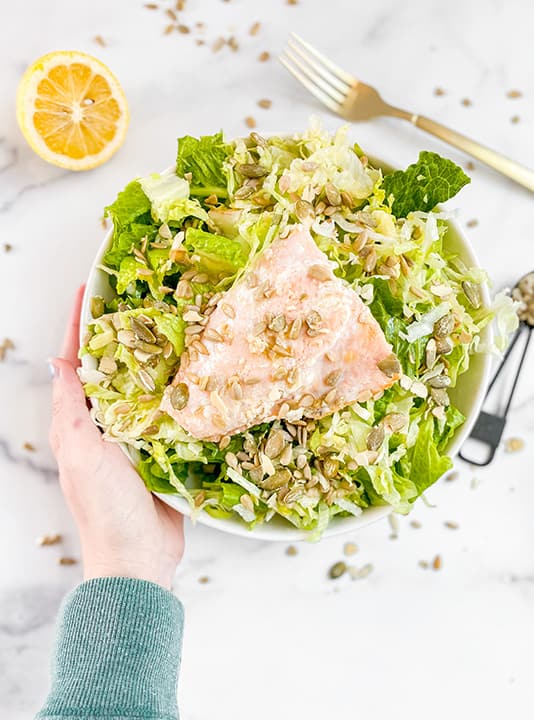
Making this salad recipe is simple, and it can be put together in no time!
Ingredients:
- Leafy greens of your choosing
- California Estate Organic Extra Virgin Olive Oil
- Salmon
- Pumpkin seeds
- Sunflower seeds
- Fresh lemon
The olive oil and lemon will act as a homemade salad dressing.
Instructions
- Cook your salmon.
- Once your salmon is cooked, you can start building your salad bowl.
- Add your greens first, then your pumpkin seeds, sunflower seeds, and salmon. Squeeze a fresh lemon and drizzle oil with an optional dash of black pepper for a DIY dressing that is both good for you and your weight management goals.
- Toss all together in a bowl.
- Sprinkle with any other desired toppings. Blue cheese, feta cheese or goat cheese all are nice add-ons.
What leafy greens go best with salmon?
Salmon can be paired with a wide variety of foods well beyond spring greens or lettuce. Some of those options include:
- Asparagus
- Green beans
- Potatoes
- Rice
- Grilled zucchini
- Broccoli
Health benefits of romaine lettuce
When it comes to putting your grilled salmon salad together, you can add any type of lettuce or cabbage. My personal favorite is romaine lettuce. It may come as a surprise that romaine lettuce boasts impressive nutritional content and potential health benefits.
So let’s check out those benefits:
Rich in antioxidants & vitamin A & C—
The powerful antioxidants vitamin A and C in this lettuce help promote proper function of the body’s different mechanisms to help fight free radicals.Promotes heart health—
Romaine lettuce provides a decent amount of iron, which is good for healthy circulation and a healthy heart.Supports bone health—
This lettuce is rich in minerals ranging from copper and iron to magnesium, manganese, and phosphorus, all of which help keep your bones strong.
Explore Our Best Food & Drink Formulas
Best oil for my salmon salad: Olive oil vs. avocado oil
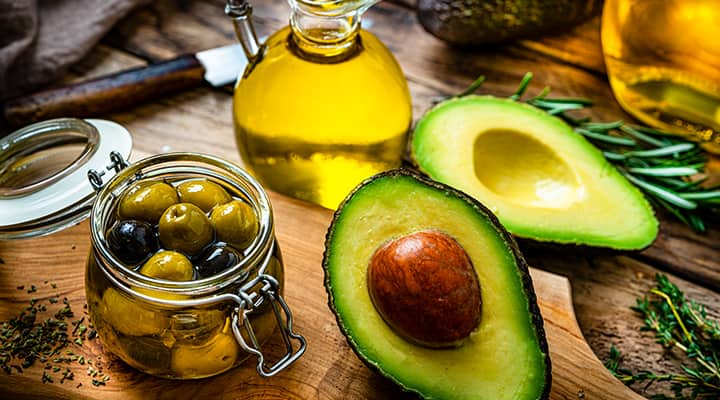
Both olive oil and avocado oil have many health benefits, so let’s take a dive into each one.
Olive oil has a nutty flavor that adds an extra level of taste to your salads, dressings, and other foods. It supports already-healthy LDL and HDL cholesterol levels and promotes a healthy inflammatory response. In addition to its cardiovascular benefits, olive oil is rich in antioxidants that support cellular health.
Studies show that the intake of at least 1.5 tablespoons of olive oil a day greatly improves markers of cardiovascular health. This is just one of the reasons I love adding olive oil to my plates.
Avocado oil has similar properties to olive oil. They both contain excellent sources of monounsaturated (good) fats and antioxidant polyphenols.
Diets high in monounsaturated fats are associated with cardiovascular benefits such as heart health and supporting already-healthy blood pressure levels. Such diets can also help maintain already-healthy cholesterol levels. Both olive oil and avocado oil contain antioxidants that help your body fight free radicals and support a healthy inflammatory response.
So if you can’t decide which one to use, just know that you can’t go wrong with either choice!
Can I add seeds to my grilled salmon salad?
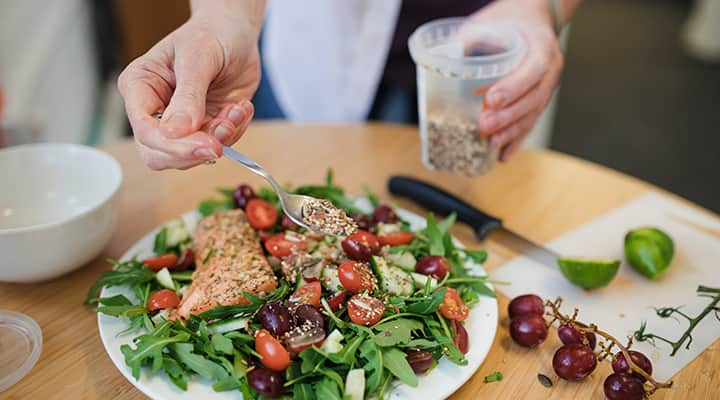
Absolutely, yes! Seeds are high in protein and a great way to get healthy fats in your diet. In this salad, I used sunflower seeds and pumpkin seeds.
Pumpkin seeds are a superfood superstar! They are great sources of protein, carotenoids, vitamin E, selenium, zinc, and more. Consuming one serving of pumpkin seeds can help you get closer to the recommended intake for these important nutrients.
Health benefits of pumpkin seeds
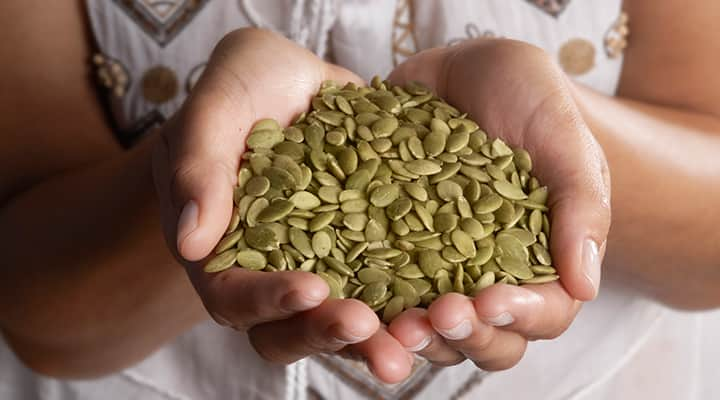
Helps with sleep and mood.
Pumpkin seeds are naturally rich in the amino acid tryptophan, which helps the body create serotonin (aka a “happy hormone”). They are also high in magnesium, another nutrient known for helping you deal with everyday stress.Helps promote already-healthy blood pressure.
They are a great source of magnesium, which relaxes the smooth muscles within the blood vessels, promoting cardiovascular health.Supports heart health.
Pumpkin seeds contain beneficial fats that help promote heart health. This includes a high concentration of omega-3 fatty acids.
Health benefits of sunflower seeds:
Promotes a healthy inflammatory response.
Sunflower seeds have a high monounsaturated and omega-6 content, which help promote a healthy inflammatory response. Regular consumption of the seeds has been linked to maintaining already-healthy C-reactive protein levels.Supports your immune system.
Sunflower seeds contain lots of minerals like zinc and selenium, which are essential for healthy immune function.Supports your nervous system.
These seeds contain a fair amount of magnesium, which, in addition to all the benefits we've already mentioned, is also important for your central nervous system.
Can I get enough magnesium from my salad?

In short, yes, you can. Adding seeds such as pumpkin and sunflower and tossing salmon regularly into your salads can make for a magnesium-rich meal!
Now you may be wondering why magnesium is so important. Well, your body needs magnesium for more than 300 essential biochemical reactions. You need to be sure to get enough magnesium from your diet, and incorporating a magnesium supplement can help you enjoy all the heart-healthy benefits it has to offer.
A magnesium supplement is great for those looking to support a healthy heart and having trouble getting enough in their diet through food. Daily use of supplemental magnesium can support healthy levels of magnesium in your body!
References
- Abuelgassim, Abuelgassim O et al. “The Effect of Pumpkin (Cucurbita Pepo L) Seeds and L-Arginine Supplementation on Serum Lipid Concentrations in Atherogenic Rats.” Afr J Tradit Complement Altern Med., 2012, https://www.ncbi.nlm.nih.gov/labs/pmc/articles/PMC3746528/
- Castaneda, Ruben. “What is the Healthiest Olive Oil?” U.S. News, April 2021, https://health.usnews.com/wellness/food/articles/what-is-the-healthiest-olive-oil
- Food Network Kitchen. “How to Grill Salmon.” Foot Network, April 2021, https://www.foodnetwork.com/how-to/articles/how-to-grill-salmon-a-step-by-step-guide
- Howley, Elaine K. “Avocado Oil v. Olive Oil: What Is the Difference?” U.S. News, May 2021, https://health.usnews.com/wellness/food/articles/avocado-oil-vs-olive-oil-what-is-the-difference
- Nell, Mariette. “12 Healthy Foods that Boost Your Brain Function.” For Care Education and Research, April 2021, https://fcer.org/brain-foods/
- Netshiomvani, Takalani. “The 14 Proven Health Benefits of Sunflower Seeds.” For Care Education and Research, April 2021, https://fcer.org/sunflower-seeds/
- Spritzler, Franziska. “11 Impressive Health Benefits of Salmon.” Healthline, June 2021, https://www.healthline.com/nutrition/11-benefits-of-salmon
- Staughton, John, BASc, BFA. “15 Incredible Benefits of Romaine Lettuce.” Organic Facts, July 2020, https://www.organicfacts.net/romaine-lettuce.html
- “FDA Completes Review of Qualified Health Claim Petition for Oleic Acid and the Risk of Coronary Heart Disease.” November 2018, https://www.fda.gov/food/cfsan-constituent-updates/fda-completes-review-qualified-health-claim-petition-oleic-acid-and-risk-coronary-heart-disease

